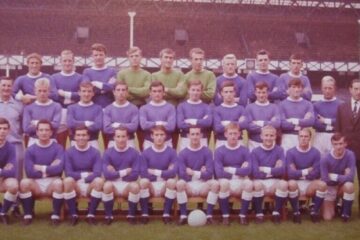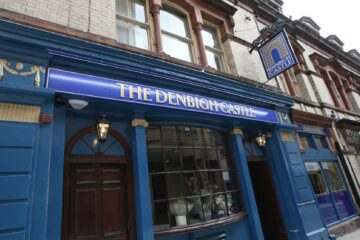by Rob Sawyer
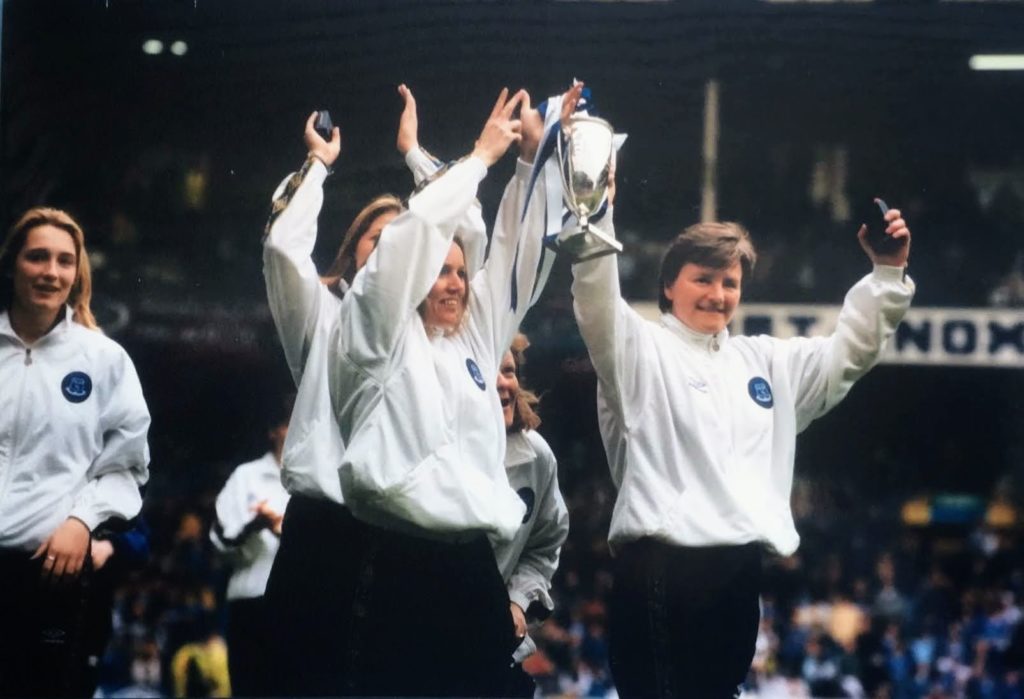
Shortly before kick-off of the women’s Merseyside derby on 24 March, a group of people stood in the centre circle of Goodison Park and received the acclaim of the 22,000-plus attendees. This was the culmination of intensive planning by Everton FC Heritage Society and Everton FC, to pay fitting tribute to the achievement of the Everton’s women’s team of 1997/98 in winning the National League title for the only time, so far, in the club’s history.
The 1997/98 season was only the third in which the club had played under the Everton banner, the move coming about at the invitation of Peter Johnson, the then Toffees chairman. The Wirral-based businessman has been blamed for many of the club’s ills in the 1990s, however, he had the foresight to agree to a suggestion from Leasowe Pacific’s chairperson, June Gordon, to bring that club into the Everton family. The roots of the club go back to 1983, when Gordon’s Bebington side pooled resources with Billy Jackson’s side, which was training at the Dolphin Youth Club in Birkenhead. The upshot was Hoylake Women’s Football Club, which subsequently became Leasowe – adding ‘Pacific’ when the club was supported by the Birkenhead pub of the same name. The club dominated local women’s football, and upset the odds to win the Women’s FA Cup in 1989, in a match staged at Old Trafford.

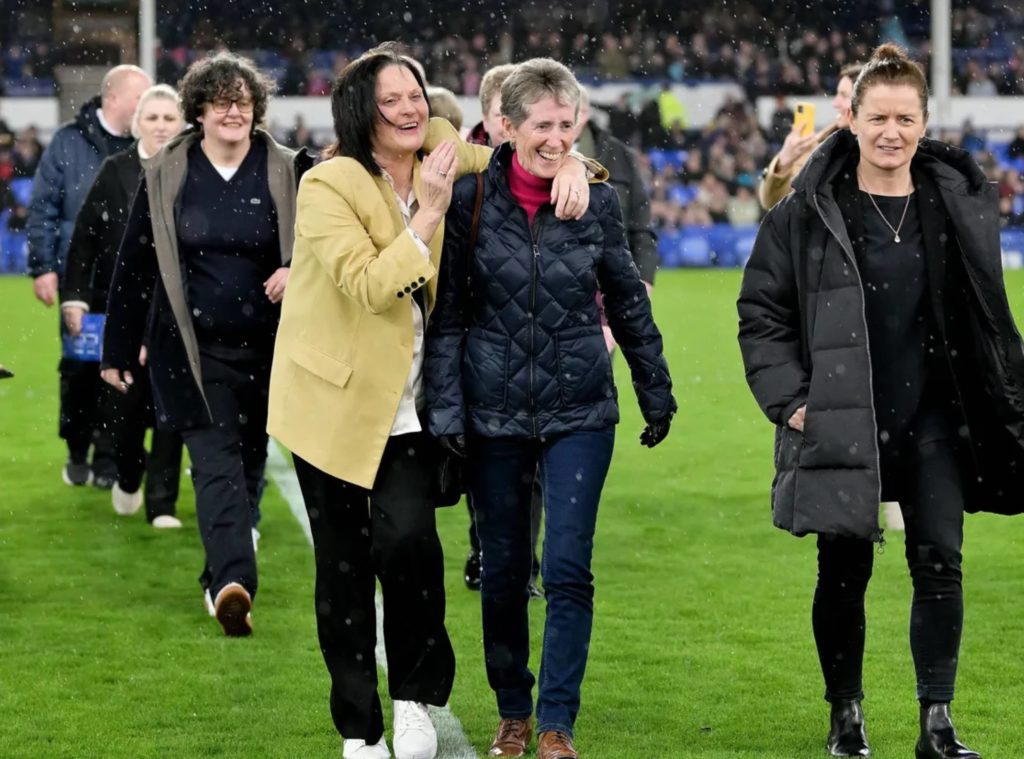
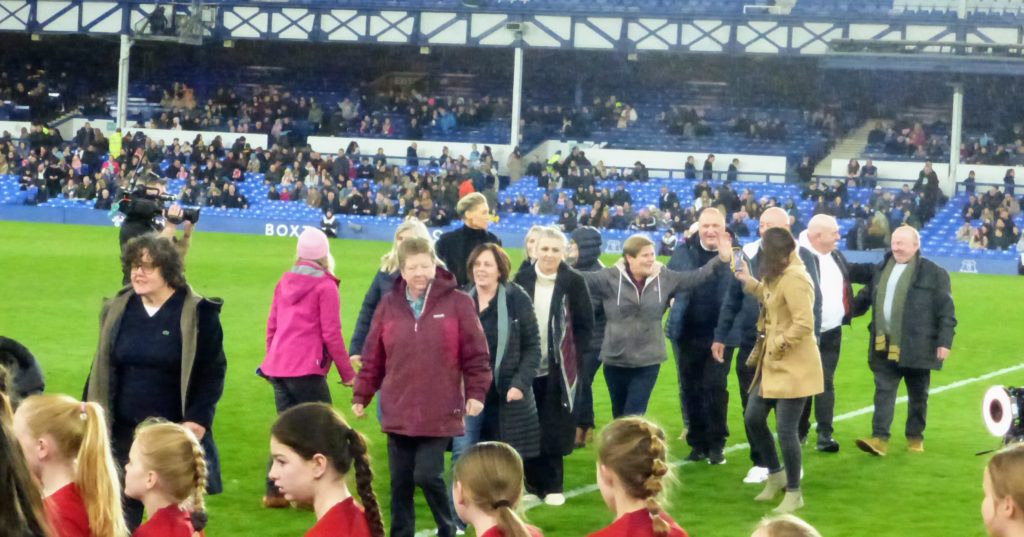
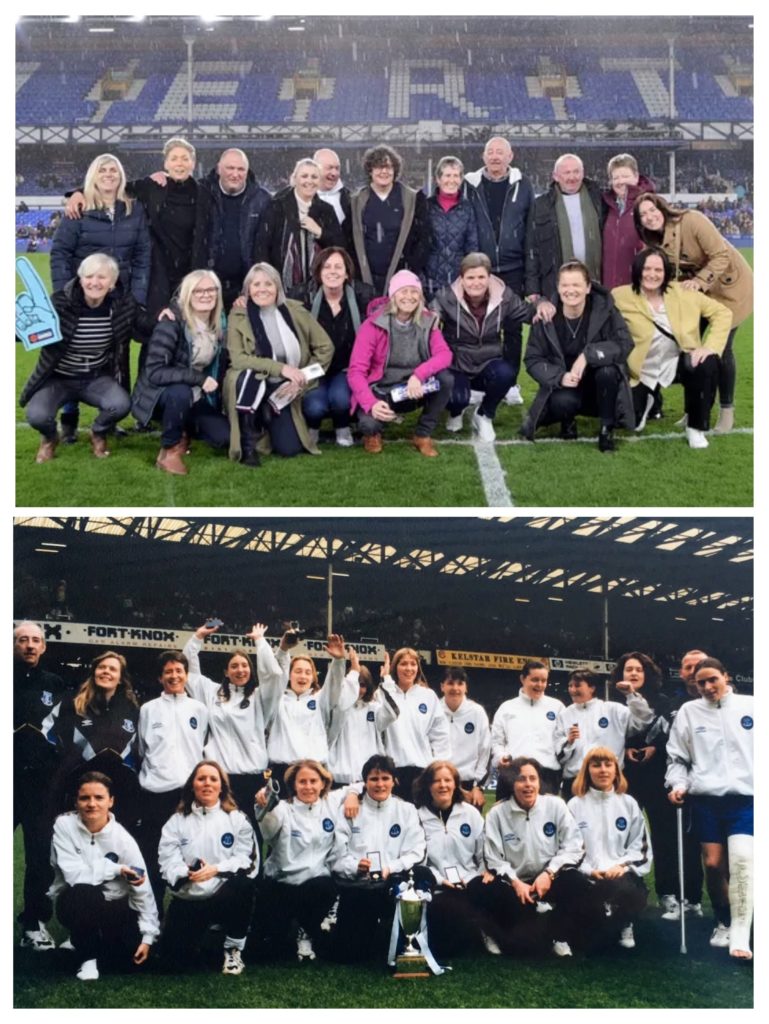
Once rebranded as Everton Ladies in 1995, playing at Marine FC’s Rossett Park ground, the club continued to grow and aimed for the top prize: the Women’s Premier League title. The addition of Becky Easton and Karen Burke from Liverpool in the 1997 close season added the quality to make that a realistic target. The England international pair, plus promising Mancunians Kerry Halfpenny and Sarah ‘Stick’ Howden, joined long-established players such as Louise Thomas, Mo Marley, Andrea McGrady, Cathy Gore and Joy McQuiggan. Other regulars included Jackie Bertie, Jeanette Hill, Tina Mason, Louise Ryde, Jo Fletcher and Tracie Johnson. Youngsters like Emma Wright (part of the great Everton footballing family) and Tammy Byrne were knocking on the door for selection. Goalkeeper Annie Wright joined mid-season and edged out Jo Fletcher. The club was led by Billy Jackson, ably assisted by his deputy Keith Marley (husband of Mo) with Keith Cliffe and John Pickering doing coaching.
Drawing with champions Arsenal on the opening day of the season, the Blues went on a fantastic run, beaten just once – away at Doncaster, and holding off a late challenge from the Gunners to clinch the title. The record read: W13, D4, L1. On paper, not the most talented squad in the competition, Everton Ladies possessed the vital ingredients of camaraderie and determination to get over the line.
Oddly, the monumental achievement by a team playing and training in their spare time, for no financial reward, drew less press coverage than winning the cup, nine years earlier. However, the squad was invited to Goodison Park to parade the trophy before the men played their relegation decider against Coventry City. Everton FC Heritage Society was determined that the 25th anniversary of the title win would get the attention it merited.
A proposal by the Heritage Society to get the squad back together as special guests at the women’s Merseyside derby was willingly agreed to by the Club (a special mention for Jo Gaskell, Sharon Borland, Mo Maghazachi and Alan McTavish for their enthusiasm and efforts) and the work of locating and contacting the former players and coaches began. In all, 14 players, plus the management/coaching team and club founders (plus partners) were able to attend. The excitement was palpable as they assembled in the 1878 Brasserie, two hours before kick-off. Although the likes of Mo Marley and Becky Easton have remained in the game, others had moved on and had not seen former clubmates in many years – so there was much catching up to do.
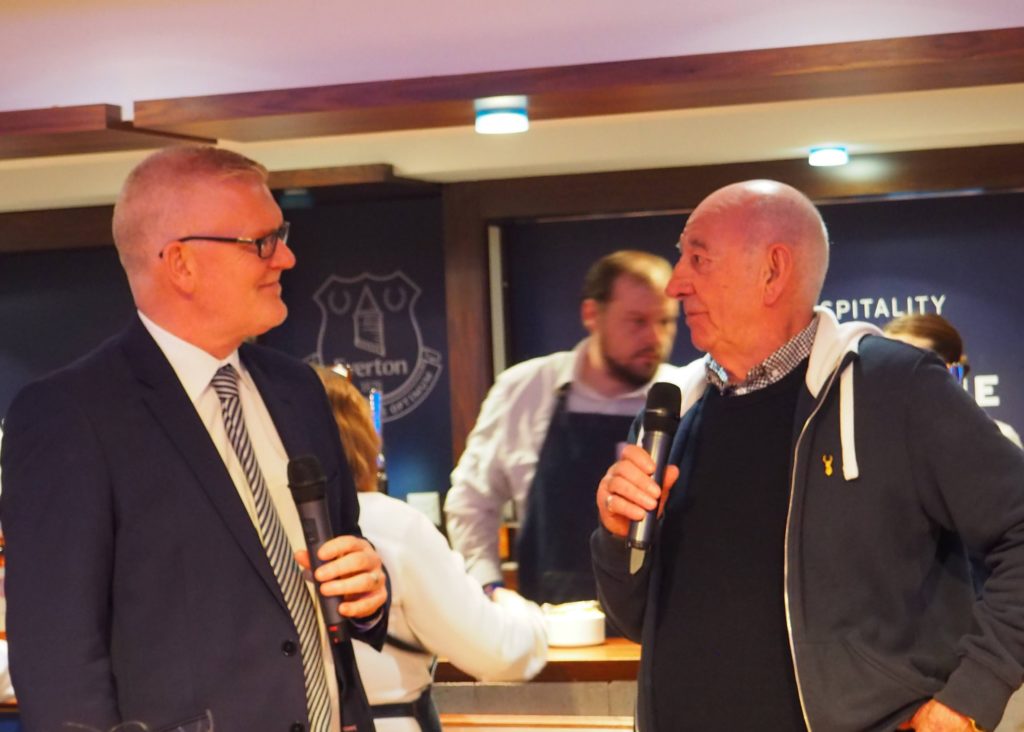
Some were interviewed on stage at the Fanzone, others for Everton’s own TV channel, while Darren Griffiths (right) put a few questions to Billy Jackson and Cathy Gore in front of appreciative diners in the 1878 Brasserie. Then, as kick-off approached, the VIPs strode onto the pitch, waving to the crowd before being photographed together in the centre circle.
Returning inside from the lashing rain, they enjoyed an action-packed match from the comfort of the director’s box. Hopefully, many present at Goodison Park, or watching on Sky TV that evening, now recognise the inspirational contribution made by this group to the development of women’s football at Everton.
Well done to Sarah Deboe/MINT Collective, Ali Jones and Rob Sawyer, all of Everton FC Heritage Society who all played a key role in seeing this wonderful event to fruition
GALLERY
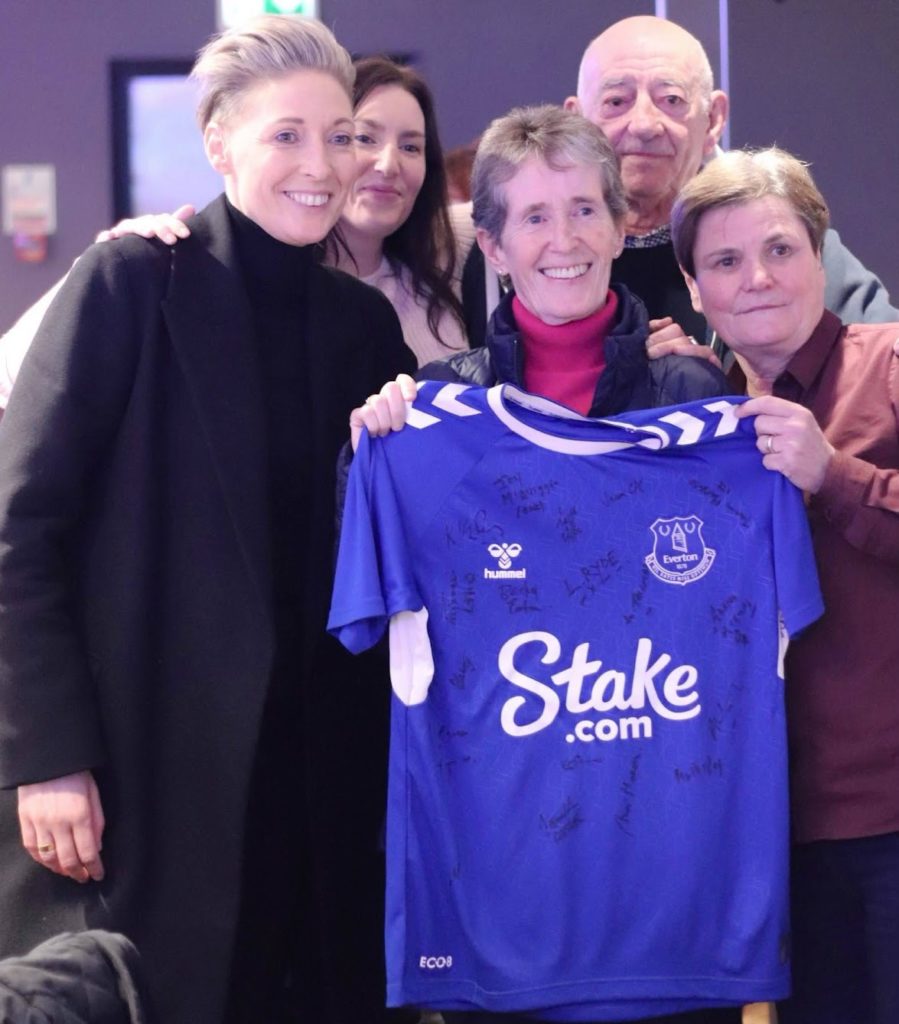
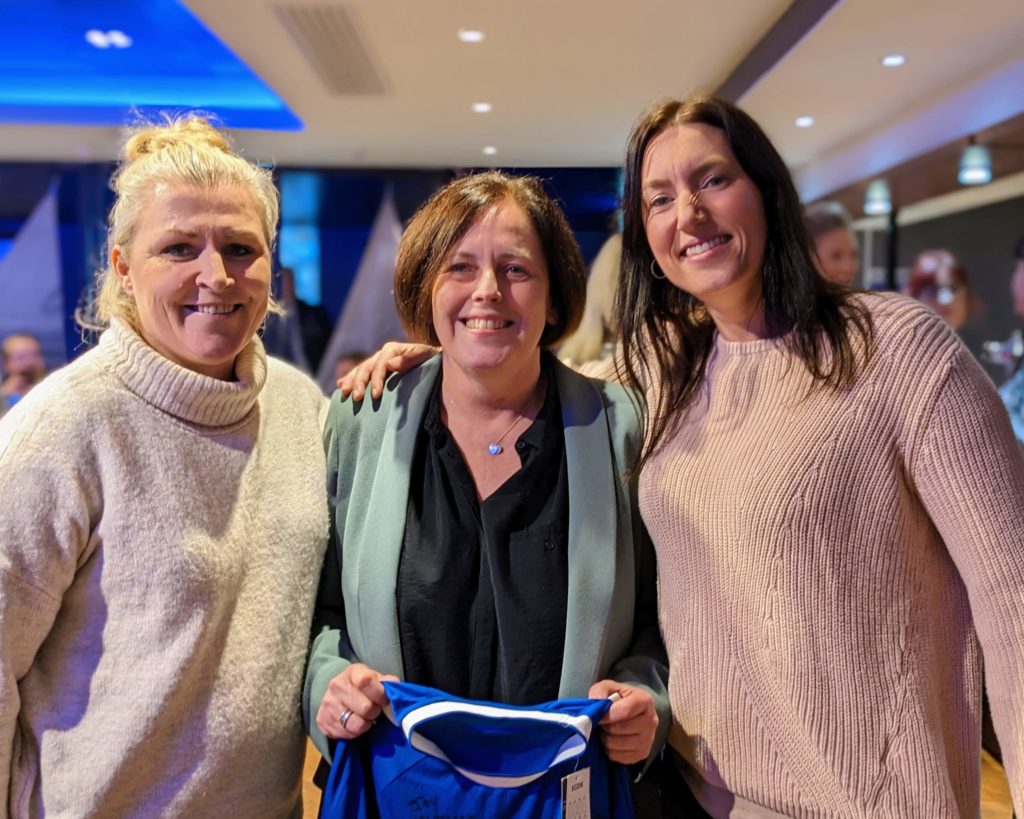
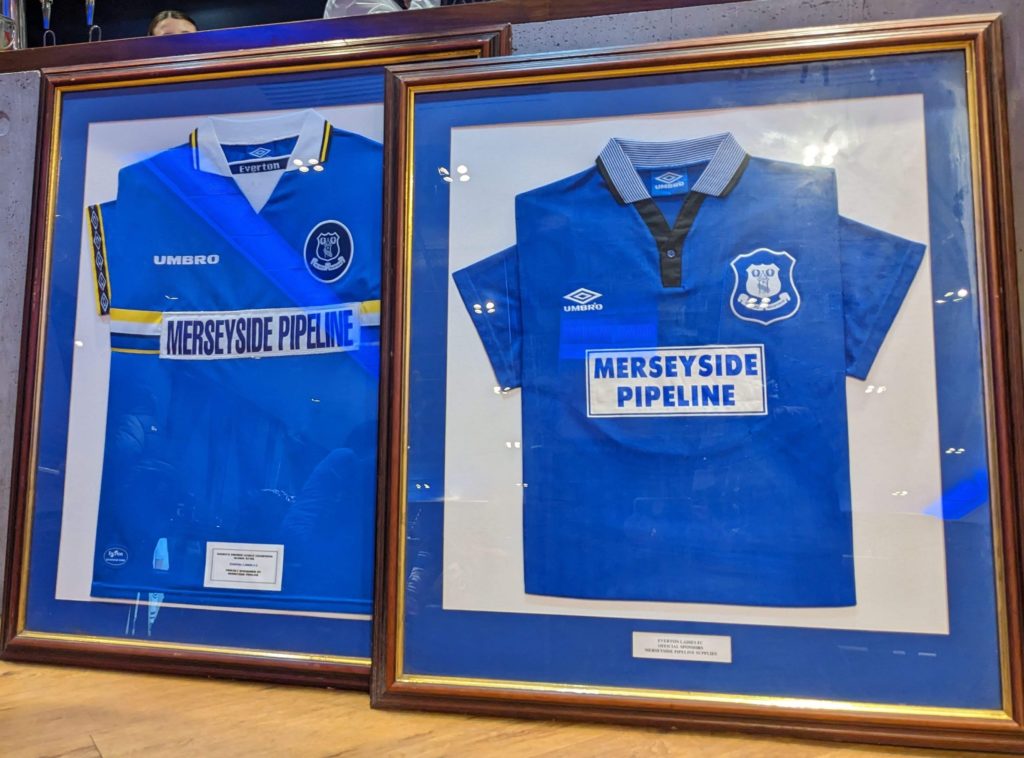
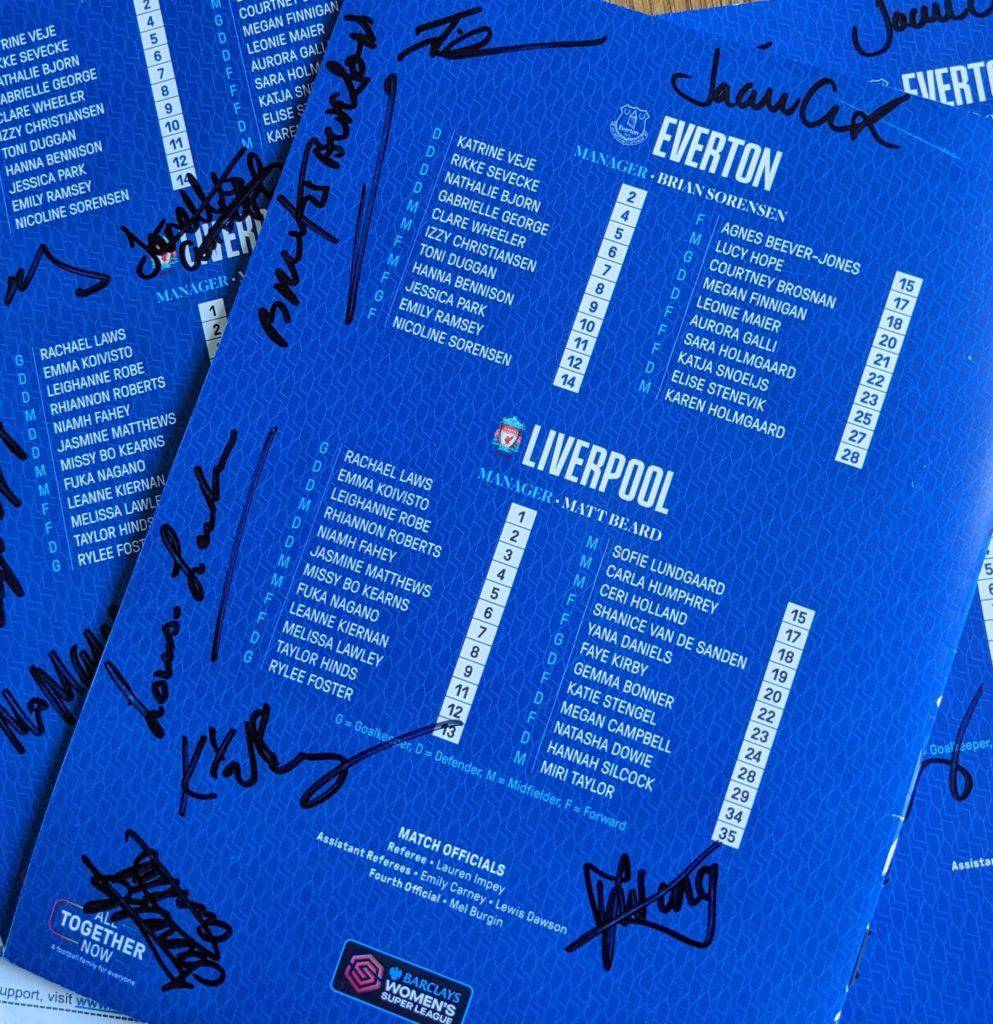
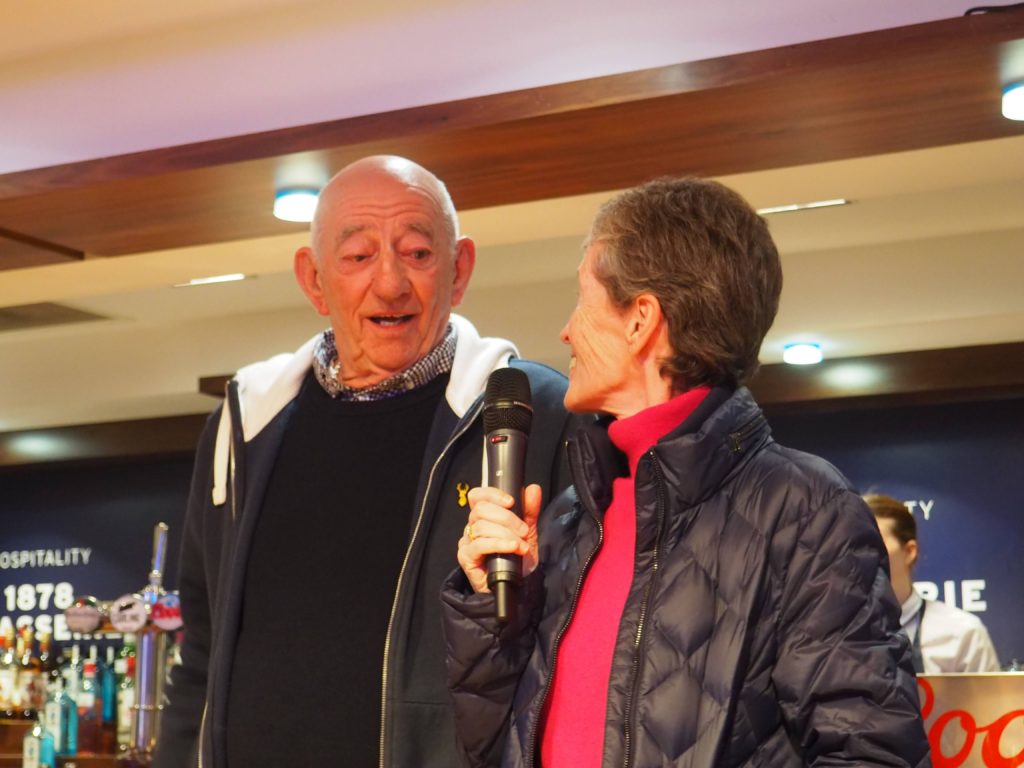
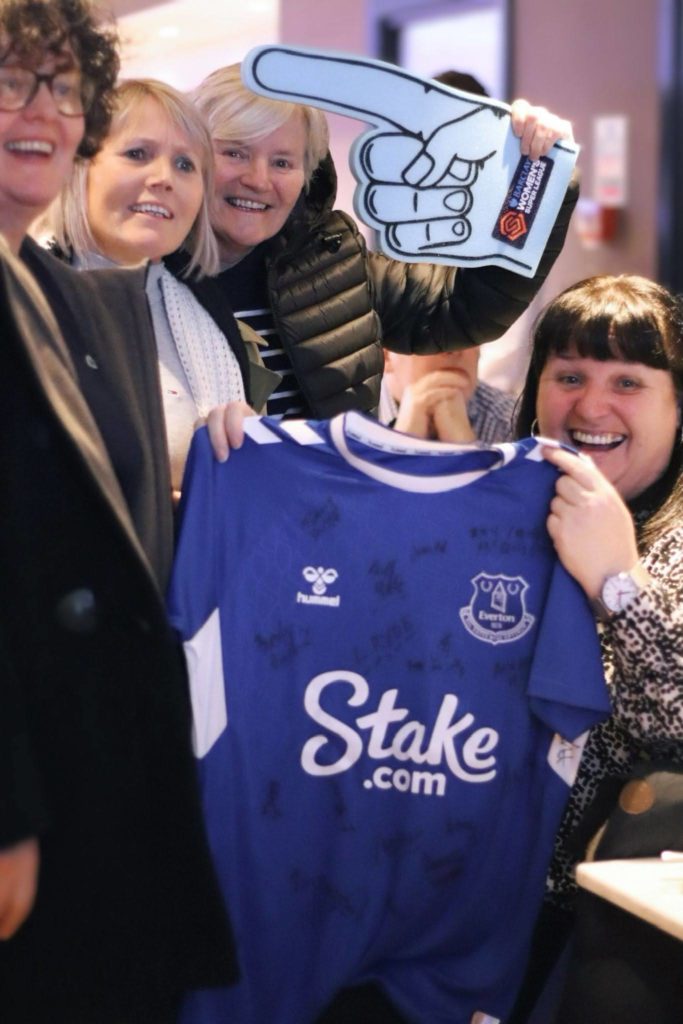
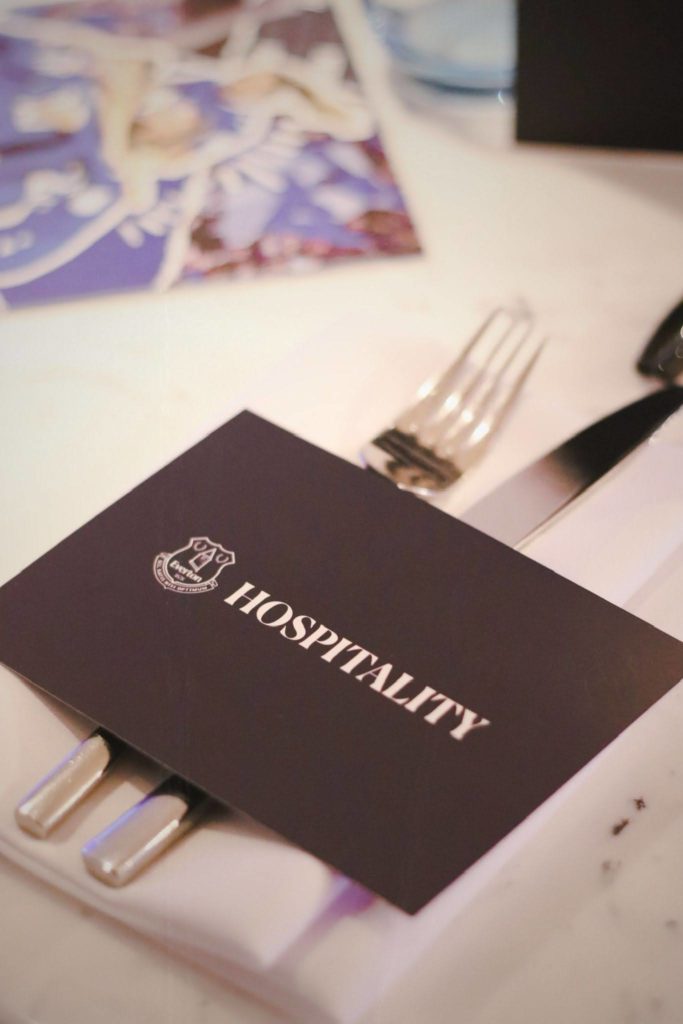
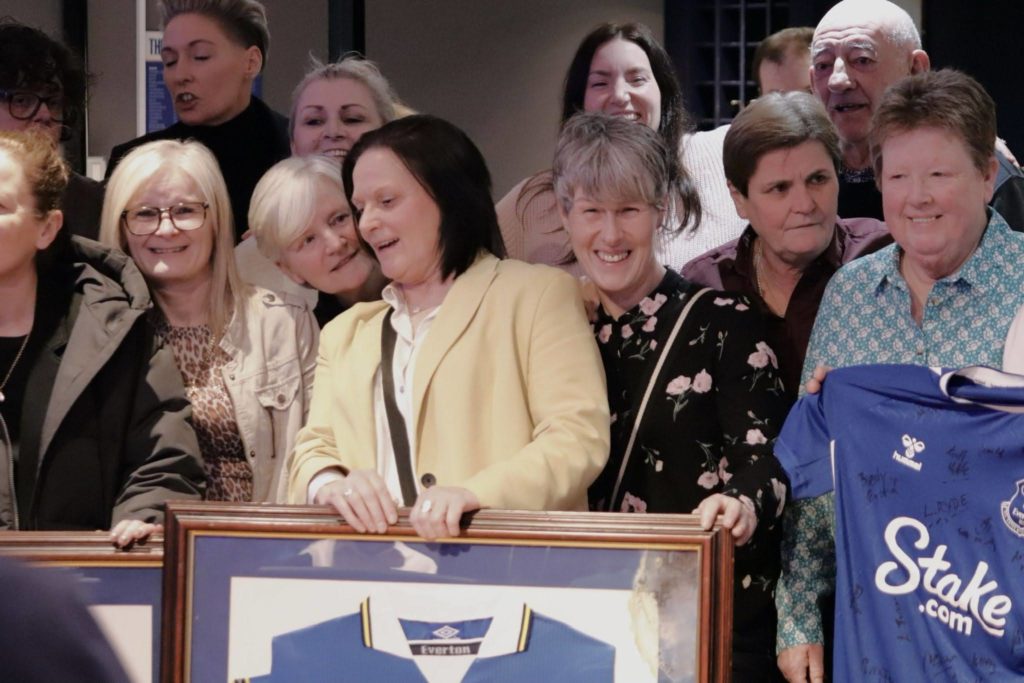
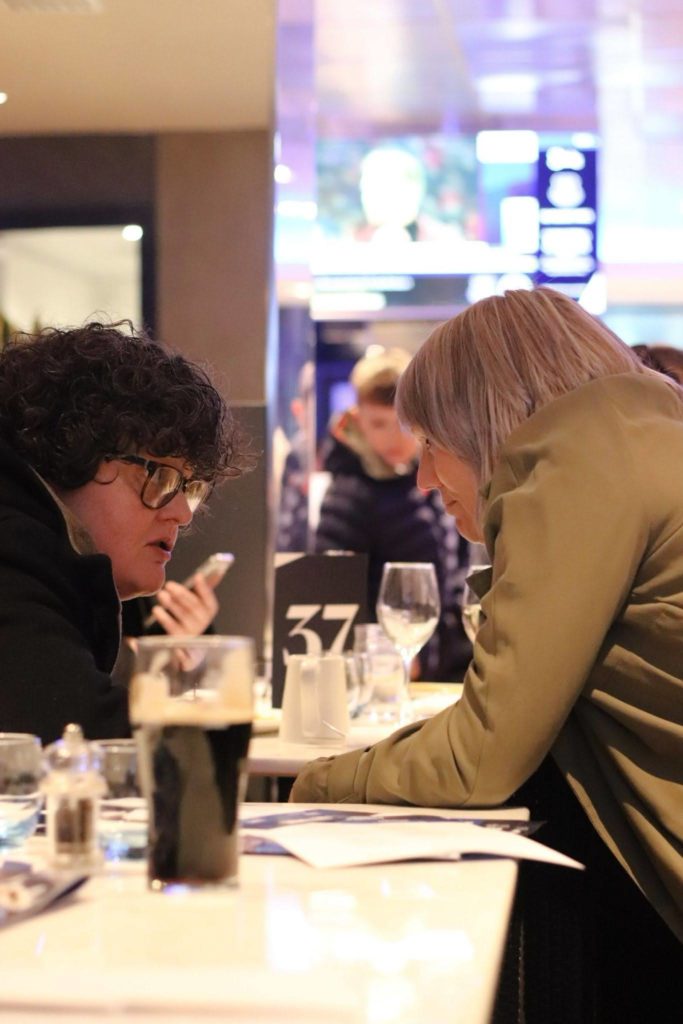
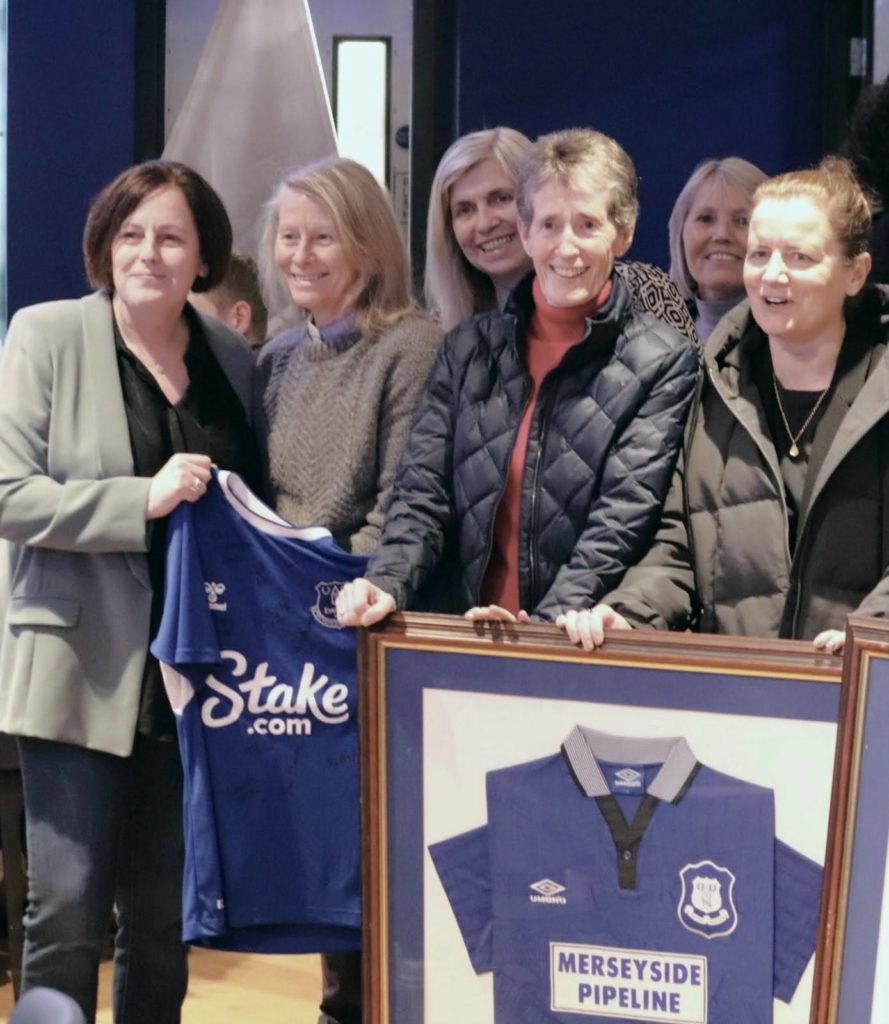
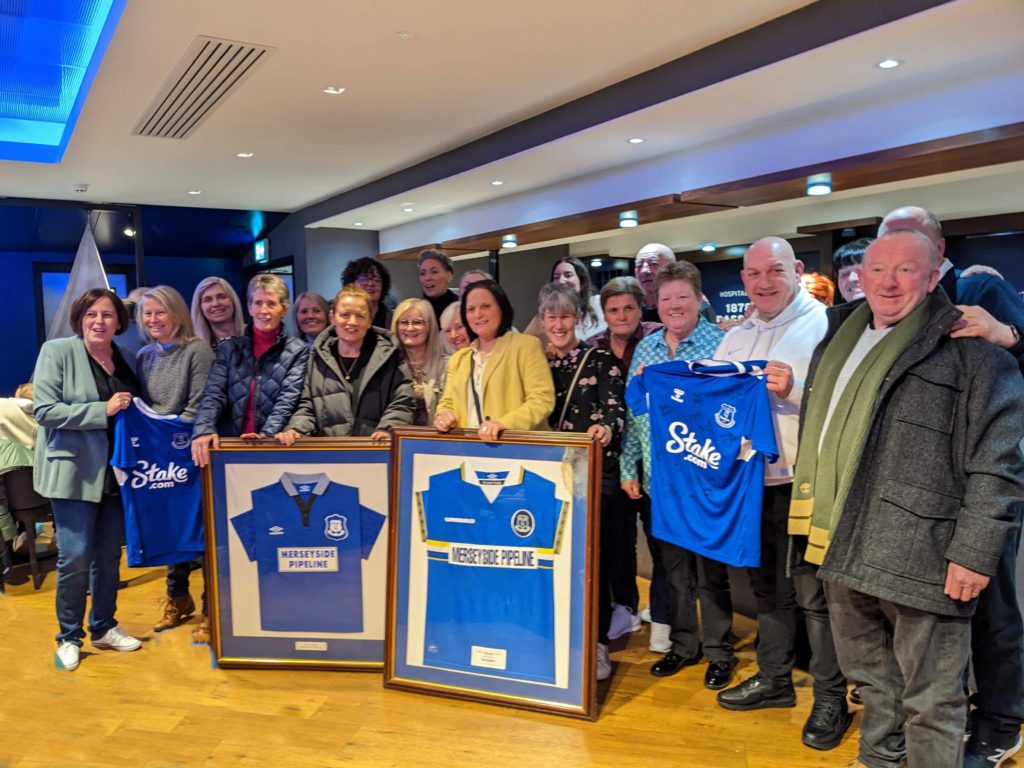
Images by Lara Spiers, Mint Collective and EFCHS


